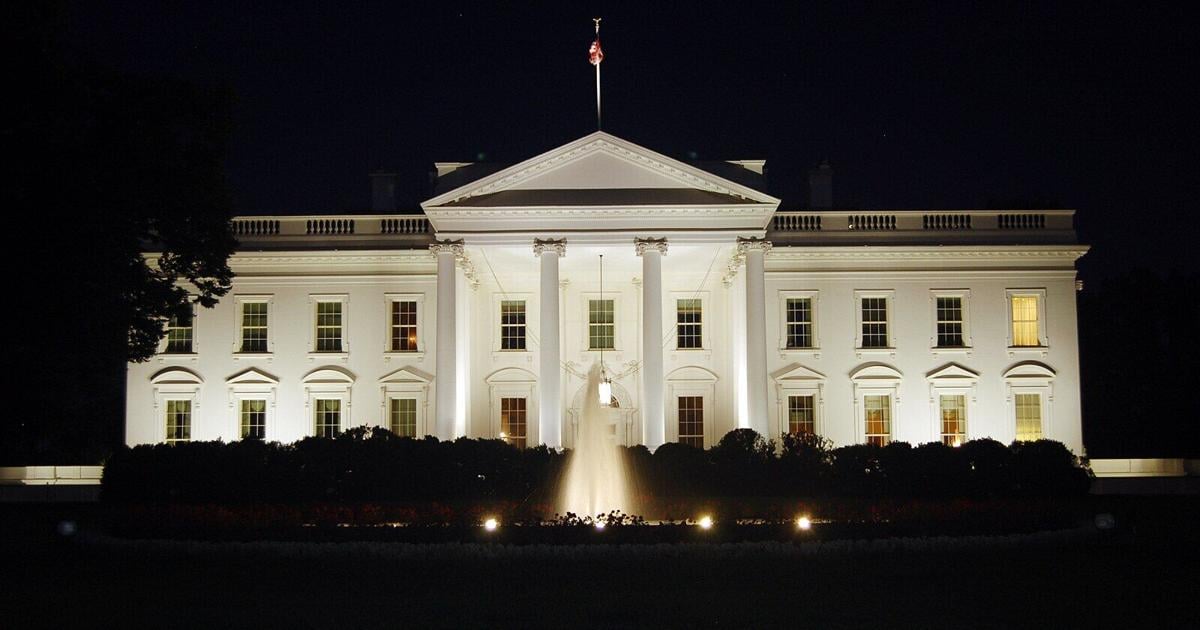Higher education has found itself at a crossroads once more with a majority opposition to the “Compact for Academic Excellence in Higher Education.”
Isaiah Gaddy | Loyolan; Raoul-Mihai Simu | Loyolan
The future of higher education has been a contentious point of discussion both in academic and political spheres as of late. Disaccord between Ivy League institutions and the current Trump administration stole headlines soon after the president took office and minority-serving institutions have faced roadblocks under recent legislation. Student support services have also had their futures compromised due to lack of continued funding.
Discussions around higher education have only escalated with the genesis of a new proposal issued by the Trump administration: the “Compact for Academic Excellence in Higher Education.”
The compact provides universities an opportunity to secure priority access to federal funding, given that said institutions abide by the terms outlined in the proposal — requirements that represent “the priorities of the U.S. government in its engagements with universities that benefit from the relationship,” according to the compact’s literature.
The exact kind of accessible funding is unclear in the proposal, according to Inside Higher Ed, but some speculate that student aid may be on the line.
College and university leaders nationwide have pushed back on the federal efforts and incentives outlined in the compact over the last month. Since its Oct. 1 issuance, both public and private institutions have disputed the proposal’s stipulations.
“Institutions of higher education are free to develop models and values other than those below, if the institution elects to forego federal benefits,” reads the compact’s introduction.
The models listed in the proposal include — but are not limited to — a tuition freeze for five years, an emphasis on neutrality for university employees, recognition of gender as biological and a 15% cap on international undergraduate student enrollment.
“I think overall, they’re just trying to bolster or highlight certain things and put it into these umbrellas of like ‘we’ll create more diverse thought on college campuses … and more opportunities for different folks,’” said Cynthia Alcantar, Ph.D., associate professor and co-director of the doctorate in educational leadership for social justice program.
“People might buy into those little, certain things … but if any institutions buries into any one of those things, [they are] bringing into all 10 of the demands that they’re requesting,” said Alcantar.
The compact, which has been opposed by LMU, contains a multitude of requirements and an emphasis on “American and Western values.”
In the same week as the issuing of the compact, Linda McMahon, U.S. secretary of education, alongside May Mailman, a former White House official and Vince Haley, director of the Domestic Policy Council, sent letters to nine institutions, inviting them to sign the compact.
The letter detailed how the compact would allow the next generation of students to develop into “resilient, curious and moral leaders, inspired by American and Western values.”
Vanderbilt University, the University of Pennsylvania, Dartmouth College, the University of Southern California, Massachusetts Institute of Technology (MIT), the University of Texas at Austin, the University of Arizona, Brown University and the University of Virginia all received invitations.
Of the nine schools, seven rejected the compact and two have not made a final decision. Vanderbilt has expressed concerns with the compact, and Texas has expressed interest in signing.
Experts in higher education have critiqued the conservative ideologies embedded in the compact, specifically regarding the commitment to abolish or restructure “institutional units that purposefully punish, belittle and even spark violence against conservative ideas.”
“Trying to protect conservative ideas against being ‘belittled’ — that’s about as violative of the First Amendment interests as you can get,” Lee Bollinger, former Columbia University president, told the Washington Post.
The American Association of Colleges and Universities (AAC&U) issued a statement on Oct. 3 opposing the compact, noting that “AAC&U … strongly opposes any alternative that would erode or eviscerate essential freedoms and promote instability by making America’s colleges and universities subject not to the law and the principles that have served us so well for centuries, but to the changing priorities of successive administrations.”
LMU President Thomas Poon, Ph.D., endorsed the statement.
“Principles of academic freedom and self-governance, as long recognized by American policymakers and the Supreme Court, are essential for the public good provided by higher education through its research and teaching. The stakes could not be higher,” wrote AAC&U.
Universities like the Massachusetts Institute of Technology (MIT) have firmly rejected the proposals; other colleges have deemed the compact a “bold step forward.”
Photo via Creative Commons
The University has also endorsed a compact issued by AAC&U outlining seven “shared principles for the common good,” including affordability, excellence and partnership.
On Oct. 12, Trump announced an extended invitation of the compact to colleges and universities nationwide in a Truth Social post, shortly after MIT publicly rejected the proposal.
Some colleges have recently expressed support for the proposal: “As other colleges have rejected the compact, we see it as a bold step forward from the Trump administration that will help preserve America’s place as the world’s number one destination for higher education,” reads a New College of Florida press release.
Administrators on The Bluff have condemned the compact since.
“It’s really important for us to come together as higher education institutions [and] push back,” said Alcantar. “We are the sector that adds to our innovation [and] forward thinking of our country … we play a role in trying to protect a lot of the freedoms and supports for our society as a whole.”

